Search
Remove Ads
Advertisement
Summary
Loading AI-generated summary based on World History Encyclopedia articles ...
Answers are generated by Perplexity AI drawing on articles from World History Encyclopedia. Please remember that artificial intelligence can make mistakes. For more detailed information, please read the source articles
Search Results
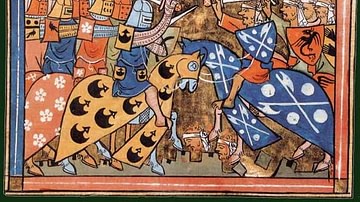
Article
The Armies of the Crusades
The armies of the Crusades (11th-15th centuries CE), which saw Christians and Muslims struggle for control of territories in the Middle East and elsewhere, could involve over 100,000 men on either side who came from all over Europe to form...
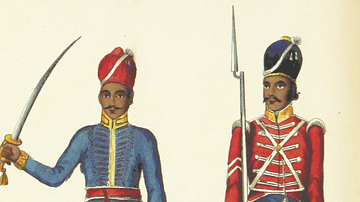
Article
The Armies of the East India Company
The East India Company (EIC) was first England's and then Britain's tool of colonial expansion in India and beyond. Revenue from trade and land taxes from territories it controlled allowed the EIC to build up its own private armies, collectively...
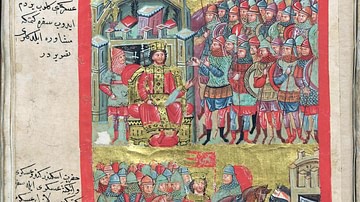
Image
The Armies of Trebizond
A 14th century CE manuscript illustration showing the Greek armies of the Empire of Trebizond (1204-1461 CE) depicted as those of Alexander the Great.

Image
The Armies of the Rashtrakutas (Eighth to Tenth Centuries CE)
This war scene shown in a temple frieze in the Kailashanatha Temple built by the Rashtrakuta emperor Krishna I (756-773 CE) depicts the Mahabharata war. The soldiers' arms and armour however, belong to the period of the imperial Rashtrakutas...
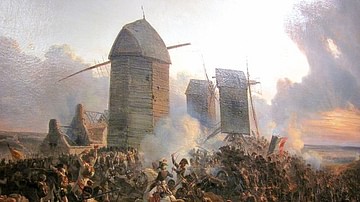
Definition
War of the First Coalition
The War of the First Coalition (1792-1797) was a continent-spanning conflict in which a coalition of European powers, including Austria, Prussia, Great Britain, the Dutch Republic, Spain, and several others, sought to contain and defeat Revolutionary...
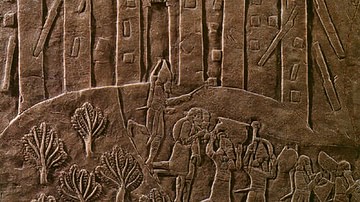
Definition
War in Ancient Times
The word 'war' comes to English from the old High German language word Werran (to confuse or to cause confusion) through the Old English Werre (meaning the same), and is a state of open and usually declared armed conflict between political...

Definition
Carthaginian Army
The armies of Carthage permitted the city to forge the most powerful empire in the western Mediterranean from the 6th to 3rd centuries BCE. Although by tradition a seafaring nation with a powerful navy, Carthage, by necessity, had to employ...
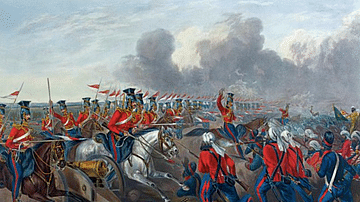
Definition
First Anglo-Sikh War
The First Anglo-Sikh War (1845-6) was a short and bloody conflict won by the British East India Company (EIC) against the Sikh Empire. The EIC was keen to expand into northern India, but the Sikh army was a well-trained, well-equipped, and...
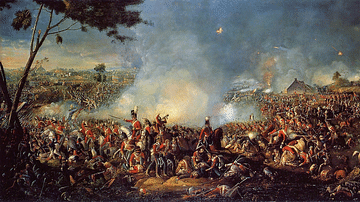
Article
Battle of Waterloo
The Battle of Waterloo (18 June 1815) was the last major engagement of the Napoleonic Wars (1803-1815), fought by a French army under Emperor Napoleon I (r. 1804-1814; 1815) against two armies of the Seventh Coalition. Waterloo resulted in...

Definition
Mongol Warfare
The Mongols conquered vast swathes of Asia in the 13th and 14th century CE thanks to their fast light cavalry and excellent bowmen, but another significant contribution to their success was the adoption of their enemies' tactics and technology...